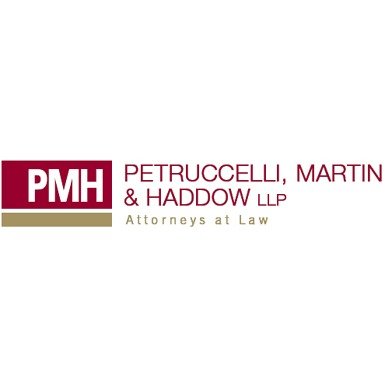Best Tax Increment Financing Lawyers in Portland
Share your needs with us, get contacted by law firms.
Free. Takes 2 min.
List of the best lawyers in Portland, United States
About Tax Increment Financing Law in Portland, United States
Tax Increment Financing (TIF) is a public financing method used in Portland and across the United States to subsidize infrastructure and community improvement projects. TIF enables municipalities to earmark future property tax revenue increases from a designated area to fund current investments that are expected to generate those gains. In Portland, TIF has been utilized to revitalize urban areas, improve public services, and stimulate economic growth by attracting private investment to previously underdeveloped areas.
Why You May Need a Lawyer
Engaging in Tax Increment Financing can involve complex legal and financial considerations. Here are some situations where legal advice may be essential:
- Your business is considering relocating to an area with TIF incentives, and you need advice on potential benefits and obligations.
- You're a developer interested in accessing TIF funds for a project and need guidance through the application process.
- You represent a community organization concerned about the impact of TIF on local taxes or public services.
- There are disputes regarding the allocation or use of TIF funds in your community.
- You require assistance in negotiating or reviewing contracts and agreements related to TIF projects.
Local Laws Overview
Portland's implementation of TIF follows specific state guidelines under the Oregon Revised Statutes (ORS), primarily Chapter 457, which governs urban renewal and redevelopment. Key aspects of these laws include:
- District Designation: Local governments must designate TIF districts based on a comprehensive plan and establish a maximum indebtedness limit.
- Public Involvement: TIF plans must undergo a public approval process, including hearings and opportunities for community input.
- Annual Reporting: Portland requires annual reporting on the financial status of TIF projects to maintain transparency and accountability.
- Project Limitations: Funds must be used for specific purposes, such as improving infrastructure, affordable housing, or community facilities within the TIF district.
Frequently Asked Questions
What is the purpose of Tax Increment Financing?
The primary purpose of TIF is to stimulate private investment in underdeveloped or blighted areas by financing public improvements that lead to increased property values and economic growth.
How is a TIF district created in Portland?
A TIF district is created through a detailed planning process that involves public input, approval by local government entities, and adherence to state laws governing urban renewal.
What types of projects can be funded by TIF?
TIF can fund various projects, including infrastructure improvements, community facilities, affordable housing, and environmental remediation efforts within the designated district.
Can property taxes increase due to TIF?
TIF itself does not increase property taxes. Instead, it affects how existing tax revenues are allocated. However, property values may rise over time, potentially leading to higher taxes.
Who oversees TIF projects in Portland?
In Portland, the Portland Development Commission (Prosper Portland) typically oversees TIF projects, ensuring compliance with local and state regulations.
How long can a TIF district remain active?
TIF districts typically remain active for a specified duration, often between 20 to 30 years, or until the projected objectives, such as debt repayment, are met.
Are TIF funds considered a grant?
No, TIF funds are not grants. They are primarily derived from anticipated increases in property tax revenue and must be repaid through the economic growth generated by the funded projects.
How does TIF impact local school districts?
TIF may impact local school funding since it redirects some property tax revenue, but regulations ensure that school funding remains adequate despite any impact from TIF.
Can TIF funds be used for non-capital expenses?
TIF funds are generally restricted to capital expenses associated with redevelopment projects, such as construction and infrastructure, not for operational costs.
Is community input necessary for TIF projects?
Yes, community input is a vital part of the TIF process, ensuring that projects align with public interests and address community needs.
Additional Resources
For further information and guidance on Tax Increment Financing in Portland, the following resources may be helpful:
- Prosper Portland: The city’s economic and urban development agency that administers TIF programs.
- Oregon Department of Revenue: Provides information on property taxes and relevant state laws.
- Local Business Improvement Districts: Organizations that often work in coordination with TIF programs to enhance local economic conditions.
- Community Development Corporations: Local non-profits that may offer advice and support related to urban redevelopment projects.
Next Steps
If you need legal assistance regarding Tax Increment Financing, follow these steps:
- Research and identify attorneys specializing in municipal law, real estate development, or financial law in Portland.
- Schedule consultations with prospective lawyers to discuss your specific needs and evaluate their expertise in TIF matters.
- Ensure the lawyer is familiar with both state TIF regulations and local policies implemented by Prosper Portland.
- Consider any recommendations from local business associations, community groups, or development organizations with experience in TIF projects.
Lawzana helps you find the best lawyers and law firms in Portland through a curated and pre-screened list of qualified legal professionals. Our platform offers rankings and detailed profiles of attorneys and law firms, allowing you to compare based on practice areas, including Tax Increment Financing, experience, and client feedback.
Each profile includes a description of the firm's areas of practice, client reviews, team members and partners, year of establishment, spoken languages, office locations, contact information, social media presence, and any published articles or resources. Most firms on our platform speak English and are experienced in both local and international legal matters.
Get a quote from top-rated law firms in Portland, United States — quickly, securely, and without unnecessary hassle.
Disclaimer:
The information provided on this page is for general informational purposes only and does not constitute legal advice. While we strive to ensure the accuracy and relevance of the content, legal information may change over time, and interpretations of the law can vary. You should always consult with a qualified legal professional for advice specific to your situation.
We disclaim all liability for actions taken or not taken based on the content of this page. If you believe any information is incorrect or outdated, please contact us, and we will review and update it where appropriate.












